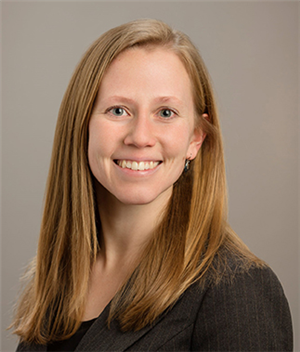
Status Affiliate Faculty
Home Department of Mechanical Science and Engineering
Phone 300-3122
Email kmatlack@illinois.edu
Address
-
Biography
Kathryn Matlack is an assistant professor in the Department of Mechanical Science and Engineering. Her primary affiliation is autonomous materials systems.
Education
B.S., mechanical engineering, Massachusetts Institute of Technology, 2008
M.S., mechanical engineering, Georgia Institute of Technology, 2013
Ph.D., mechanical engineering, Georgia Institute of Technology, 2014
-
Honors
2021: NSF CAREER Award
2021: Journal of Applied Mechanics Award
2020: Army Research Office Young Investigator Award
2019: Air Force Young Investigator Research Program Award
2018: Haythornthwaite Research Initiation Grant, ASME Applied Mechanics Division
-
Research
Research Areas:
Applied Physics
Dynamics & Controls
Energy
Manufacturing
Security and Defense
Solid Mechanics and Materials
Transportation
Research Interests:
Damage-tolerant metamaterials
Wave propagation in complex media
Additive manufacturing
Mechanical metamaterials
Ultrasonic nondestructive evaluation
Phononic materials
The Wave Propagation and Metamaterials (WPM) Lab is a research team dedicated to uncovering fundamental mechanical relationships between structure and mechanical wave propagation. They study how the structure at different length scales lead to new ways to control how mechanical waves propagate in materials.
They seek fundamental mechanics-based discovery yet they are driven by critical applications. This research team strives to understand how the concepts they study can be applied in real materials and structures. They place an emphasis on fabrication and experimental realization, as well as realistic material platforms. The Wave Propagation and Metamaterials (WPM) Lab has two main focus areas:
Phononic Metamaterials: Their goal is to design new materials and structures that can control mechanical waves in unprecedented ways. They take a holistic modeling-experimental approach, integrating simple physics-based analytical models, high-fidelity simulations, advanced manufacturing, and experimental wave mechanics. Our current thrusts include:
Ultrasonic NDE: The main goal of this aspect of their research is to understand the relationship between microstructure and the ultrasonic response, in order to develop new methods of NDE. Their approach is primarily experimental, integrating advanced ultrasonic measurements with comprehensive micro-structural analysis and mechanical testing. Current thrusts include:
-
2019
- Arretche, I., and Matlack, K. H. (September 17, 2019). "Experimental Testing of Vibration Mitigation in 3D-Printed Architected Metastructures." ASME. J. Appl. Mech. November 2019; 86(11): 111008. https://doi.org/10.1115/1.4044135
- Chaitanya Nimmagadda, Kathryn H. Matlack, Thermally tunable band gaps in architected metamaterial structures, Journal of Sound and Vibration, Volume 439,2019,Pages 29-42, ISSN 0022-460X,https://doi.org/10.1016/j.jsv.2018.09.053.
- Grinberg, K.H. Matlack,Nonlinear elastic wave propagation in a phononic material with periodic solid–solid contact interface, Wave Motion, Volume 93, 2020,102466,ISSN 0165-2125, https://doi.org/10.1016/j.wavemoti.2019.102466. (https://www.sciencedirect.com/science/article/pii/S0165212519302276)
2018
- 10.3389/fmats.2018.00068, Arretche, Ignacio and Matlack, Kathryn H., On the Interrelationship Between Static and Vibration Mitigation Properties of Architected Metastructures, Frontiers in Materials, 5, 2018, https://www.frontiersin.org/articles/10.3389/fmats.2018.00068, 10.3389/fmats.2018.00068,2296-8016
- Matlack, K.H., Serra-Garcia, M., Palermo, A. et al. Designing perturbative metamaterials from discrete models. Nature Mater 17, 323–328 (2018). https://doi.org/10.1038/s41563-017-0003-3